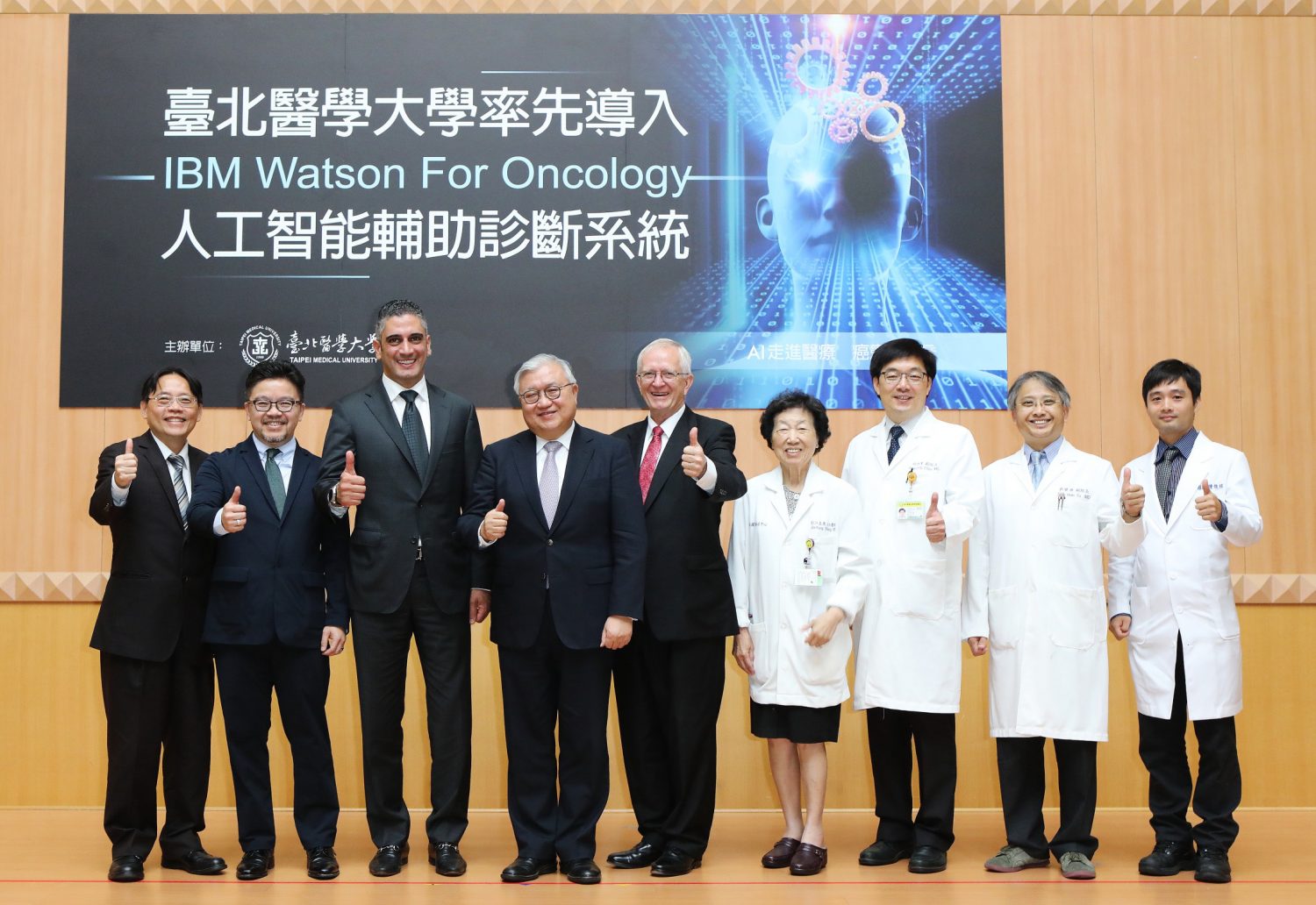Global partners, IBM Watson help TMU researchers fight cancer

Turning scientific research findings into clinical treatments has long been a TMU specialty. Collaborations between scientists and clinicians seeking new strategies against cancer have been particularly fruitful.
Last spring’s Joint Oncology Symposium, co-organized by the University of Pittsburgh Cancer Institute, brought US and Asian experts to TMU to share ideas on promising cancer treatments.
Lung, skin and prostate cancers were discussed using comparative studies of patient cohorts as well as care options. The UPCI-TMU Symposium also explored use of “big data” and data management applications for clinical treatment development.
Another example of TMU cancer research leadership is the Asia-Pacific Joint Symposium of Recent Progresses in GI Cancers held in last summer, which focused on gastric, colorectal and peritoneal carcinomatosis. Researchers from the National University of Singapore and the Chinese University of Hong Kong joined local peers to share new tools for early detection of gastric cancers, as well as recent chemotherapies that temper stromal response in pancreatic cancer.
“International research symposiums are useful platforms where we invite researchers from other countries to share their latest work,” said TMU Taipei Cancer Center Superintendent Jacqueline Whang-Peng, a renowned researcher and Academia Sinica member who was the first woman scientist at the US National Institutes of Health. “I always encourage young and seasoned clinicians to take part in these events,” because their discussions are “pre-selected, condensed, and relevant. … [Such interactions] are not replaceable by an online search” for physicians renewing their knowledge and skills.
Dr. Whang-Peng said existing cancer knowledge is insufficient, particularly in difficult clinical cases: “This is when the [doctors’] ability to conduct research becomes critical.” She encourages clinicians to gain research skills, whether through programs like TMU’s MD-PHD degree or postgraduate research. Yet for physicians who remain primarily clinicians, research meetings are crucial to professional development.
International or regional exchanges offer fresh perspectives, Dr. Whang-Peng said. “The similarities in dietary habits, lifestyles and external environments in the Asia-Pacific region provide some preconditions for studies of locally prevalent cancers.
“Similarly, working with researchers in the United States helps [TMU researchers] understand how, given genetic differences and varied patient cohorts, the same cancers are treated with diverse approaches.” Expanding physicians’ knowledge base helps them choose the best treatments for each patient, she said.
IBM Watson brings best knowledge to bedside
TMU’s tradition of evidence-based cancer treatment approaches led to the university’s recent implementation of IBM Watson for Oncology, which helps inform oncologists’ decisions aided by artificial intelligence technologies.
As Taiwan’s Ministry of Health and Welfare expects more than 100,000 new cancer cases in 2017, service providers and systems seek data-driven, evidence-based cancer care. Yet the vast and rapidly expanding medical literature challenges busy clinicians who are also short of time to follow hundreds of journals. PubMed, a major US-govornment-funded archive service of biomedical and life sciences journal literature, shows that about 50,000 oncology research papers are published annually, and by 2020 medical information is projected to double every 73 days (Densen, 2011), far outpacing human ability to keep up.
IBM Watson for Oncology identifies treatment options with supporting medical evidence for consideration by oncologists, drawing from more than 200 textbooks and 300 medical journals that represent nearly 15 million text pages. While oncologists may be able to access the same resources through traditional libraries, Watson’s function is to filter and highlight evidence-based treatment options, ranking them and linking to peer-reviewed studies and clinical guidelines.
“The introduction of Watson for Oncology will be a game-changer for cancer patients in Taiwan,” said Professor Yun Yen, a renowned oncologist and researcher who just stepped down as TMU’s president. “With Watson, our team of oncologists can make informed treatment decisions for patients based on insights derived from the individuals’ unique health status, the latest medical research and other relevant data.”
Cancer patients will benefit from more comprehensive clinical judgements based on this computing tool. Taiwan’s first health care system to implement this is Taipei Medical University’s four affiliated hospitals – the Taipei Cancer Center, TMU Hospital, Wan Fang Medical Center, and Shuang Ho Hospital.
For interviews or a copy of the paper, contact Office of Global Engagement via global.initiatives@tmu.edu.tw.









